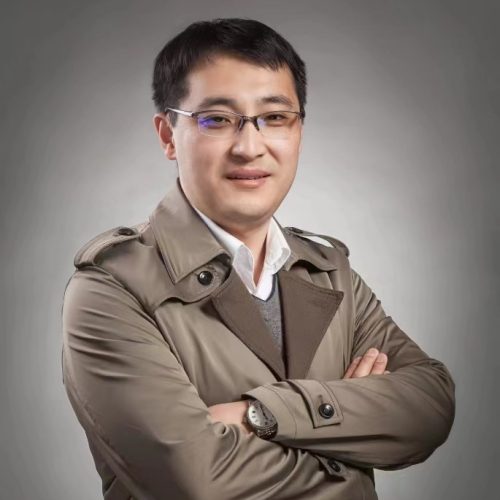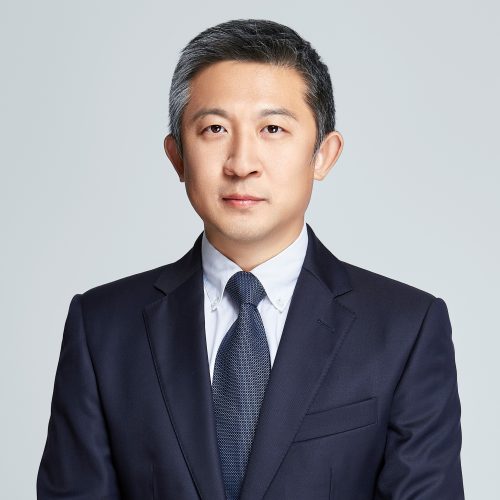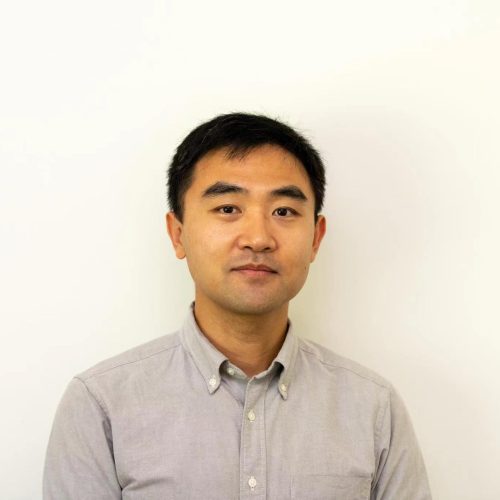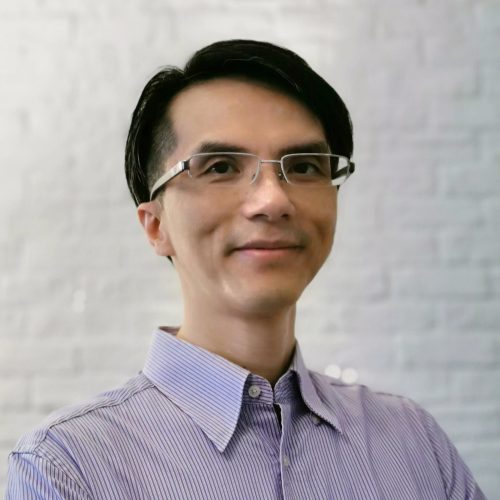Executive Committee
President

Xunpeng (Roc) Shi
University of Technology Sydney, Australia/President of ISETSXunpeng (Roc) Shi is a Professor of Energy and Environmental Economics and Sustainability and Research Principal at the Australia-China Relations Institute, UTS; President of the International Society for Energy Transition Studies (ISETS); and a Council Member (President, 2016-2018) of the Chinese Economics Society Australia (CESA). His research interests cover the full spectrum of energy, climate change and other environmental issues in economics, policy, and sustainable development, with regional focuses on Australia, China, ASEAN , and Northeast Asia. He was listed in 2020 as Australia’s leading researcher in the field of Environmental Law and Policy, the top 2% of the world’s top scientists in the energy field, and the top 2% of authors in the world’s largest database of economists (RePEc). He serves as a Specialty Chief Editor of Frontiers in Environmental Economics, a co-Editor of Journal of the Asia Pacific Economy (SSCI), an associate editor of China and World Economy (SSCI), Energy Economics (SSCI, A*), Energy Engineering (EI), Journal of Environmental Economics (in Chinese), and other editorial roles for more than 10 journals. He has worked in the energy sector for more than 25 years in roles spanning industry, government and research institutes in Australia, Brunei, China, Indonesia, Singapore, and an international organisation. He has advised international organisations, including ADB, and the International Group of LNG Importers (GIIGNL). Currently, he is an advisor to Global Gas Center (GGC), APEC Sustainable Energy Center (APSEC), and UN ESCAP and frequently participates in the United Nations and other international policy debates. Incredibly driven by his work, Roc’s ultimate aim is to promote the cost-efficient transition to a low carbon future while protecting vulnerable stakeholders through research, service and global leadership.
Vice Presidents

Qiang Ji
Chinese Academy of Sciences,ChinaDr. Ji’s research interest covers broad areas of big data and energy finance, energy economics and energy strategy management, forecast modelling and risk management and financial econometrics. He is an Associate Professor in the Chinese Academy of Sciences (CAS). He has published more than 100 articles in peer-reviewed journals in energy, finance and economics. He is the principle investigator of over ten grants from the National Natural Science Foundation of China (NSFC) and CAS. He is an associate editor for International Review of Financial Analysis, the co-founder of China Energy Finance Network, and the Council Member of Chinese Society of Low Carbon Development Management and Chinese Society of Energy Resources Systems Engineering. He received his PhD in Management Science and Engineering from CAS in 2011.

Farhad Taghizadeh-Hesary
Tokai University, JapanDr Farhad Taghizadeh-Hesary is an associate professor of economics at Tokai University in Japan, and a visiting professor at Keio University, Japan. He obtained a PhD in energy economics from Keio University in 2015 with a scholarship from the government of Japan (MEXT). He taught as an assistant professor at Keio following the completion of his PhD until March 2018 and as an assistant professor at the faculty of political science and economics of Waseda University 2018-2020. He is a grantee of the Excellent Young Researcher (LEADER) status from the Ministry of Education, Culture, Sports, Science, and Technology (MEXT) of Japan with a 5 years’ competitive research grant (2019-2024). Presently he is also a visiting professor at Chiang Mai University (Thailand) and a distinguished research fellow and external scientific member at the University of Economics Ho Chi Minh City (Vietnam). Dr Taghizadeh-Hesary has published on a wide range of topics, including energy economics, energy policy, green finance, small and medium-sized enterprises finance, monetary policy, banking; Asian and Japanese economy. Currently, he is serving as Associate Editor of Finance Research Letters (SSCI), Associate Editor of Singapore Economic Review (SSCI), Associate Editor of Global Finance Journal (ESCI, Scopus) and Editor of Cogent Business & Management (Taylor & Francis, Scopus).

Yongping Sun
Huazhong University of Science and Technology, ChinaYongping Sun is a professor at the School of Economics and a Vice Dean of the Institute of State Governance, Huazhong University of Science and Technology. He is Co-director of the Collaborative Innovation Center for Carbon Emissions Trading Co-constructed by the Province and Ministry, chief expert of Major Projects of the National Social Science Fund, and Vice President of the Council of the International Society for Energy Transition Studies. He serves as an Executive Deputy Editor of Journal of Environmental Economics. His research focuses on global climate governance and emission trading system. He is renowned for his research on China’s emission trading system. In recent years, he has published more than 80 academic papers in top journals such as Science, Energy Economics, Applied Energy, Energy Policy, and other journals.

Dayong Zhang
Southwestern University of Finance and Economics, ChinaDayong Zhang is a Professor of Financial Economics at Southwestern University of Finance and Economics (China), the president of the Society for the Studies of Climate Finance (SSCF) in China, vice president of International Society for Energy Transition Studies (ISETS), the co-founder of China Energy Finance Network (currently the ISETS Energy Finance Network). His research interests cover energy finance, climate finance, banking and finance, and general economic and financial issues in emerging economies.
He has published over 100 articles in peer reviewed journals and acted the chief investigator of the National Social Science Foundation of China (NSSFC) Major Project, and principal investigator of over ten research grants from National Natural Science Foundation of China (NSFC) and other sources.
He serves as the chief-editor of Journal of Climate Finance, and the associate editor of: International Review of Financial Analysis (SSCI), International Review of Economics and Finance (SSCI), and Finance Research Letters (SSCI). He is on the Elsevier’s list of China’s Most Cited Scholars between 2020 and 2022, and the Clarivate Highly Cited Researcher (2021-2022).
Secretary

Muyi Yang
Asia Society Policy Institute (ASPI), AustraliaDr. Muyi Yang currently holds the position of Associate Director of Clean Energy at the Asia Society Policy Institute (ASPI), where he is responsible for leveraging ASPI’s analytical work and convening capacity to promote the transition towards a cleaner and more sustainable energy future in Asia.
Prior to joining ASPI, he worked at the University of Technology Sydney from 2016 to 2022, actively engaging in teaching, research, and consulting on diverse energy policy themes including electricity market reform, renewable energy, coal power phasedown, transport electrification, energy governance, and political economy. His main areas of focus are China, Southeast Asia, and Oceania. Furthermore, he worked at Ember, a global energy and climate think tanks between 2020 and 2023, and at NSW Trade and Investment from 2014 to 2015.
Muyi holds a PhD and a Master’s degree in energy policy, as well as a Bachelor’s degree in Applied Science.
Treasurer

James Tsun Se Cheong
Hang Seng University of Hong Kong, Hong KongDr. Cheong is an Associate Professor at the Hang Seng University of Hong Kong and an Adjunct Associate Professor at the University of Technology Sydney. He received his PhD in Economics from the University of Western Australia where he also worked as a Postdoctoral Research Fellow in economic modelling. He also holds a Master of Applied Finance from Western Sydney University, a Master’s degree in International Relations from Griffith University and a Bachelor’s degree (Honours) in Engineering from the Hong Kong Polytechnic University. He has conducted research in many different areas of economics and finance. The findings of his research studies have been published in many prestigious journals. He is the Associate Editor of the Journal of the Asia-Pacific Economy, the Treasurer and Founding Member of the International Society for Energy Transition Studies (ISETS), and a member of the Executive Committee of the Chinese Economics Society Australia. He has extensive knowledge in Computable General Equilibrium (CGE) analysis and applied economic modelling (GEMPACK ORANI-G, RunGDYN, RunGTAP, TERM). Moreover, he has comprehensive knowledge of state-of-the-art analytical techniques such as machine learning, artificial neural network analysis, deep learning, AI image and large language models (LLMs). He has provided professional training in economics to various professional associations and corporations in Hong Kong and has participated in many consultancy projects and TV interviews.
Members

Llewelyn Hughes
Australian National University, AustraliaDr. Hughes is a Professor at the Crawford School of Public Policy, Australian National University (ANU) and senior consultant in energy & environment for GR Group, a government affairs and public policy consultancy headquartered in Tokyo. His academic work is on how public policies affect, and are affected by, the low-carbon energy transition, with a particular focus on the Asia-Pacific region. An ongoing project examines how the rise of Global Value Chains affect the ability of governments to promote green growth industries. Before joining the ANU Dr. Hughes worked at the Elliott School of International Affairs at George Washington University (GWU) in Washington DC, and before that the Consortium for Energy Policy Research at the John F. Kennedy School of Government, Harvard University. He has also been a visiting fellow at the Institute of Advanced Sustainability Studies in Potsdam, the Environmental Policy Research Centre (Forschungszentrums für Umweltpolitik) at Freie Universität, the Centre of Geopolitics of Energy and Raw Materials (CGEMP) at Université Paris Dauphine, Tokyo Foundation, Japan Business Federation (Keidanren), and the Japan Institute for Energy Economics (IEEJ).

Victor Nian
Centre for Strategic Energy and Resources, SingaporeDr. Victor Nian is CEO of Centre for Strategic Energy and Resources . Untill recently, he was a Senior Research Fellow of the Energy Studies Institute (ESI), National University of Singapore and Adjunct Professor at Tianjin University of Commerce. Dr. Nian is also the Founding President of the Academy of Applied Systems Science and the Executive Director of UNiLAB on Integrated Systems Analysis Tools. Both the Academy and UNiLAB are established in Singapore with more than 15 partnering organisations worldwide. Dr. Nian holds a PhD in Mechanical Engineering and Bachelor in Electrical Engineering with a minor in Management of Technology, all from NUS. Dr. Nian has more than 10 years’ experience in energy policy research especially in industrial policy and nuclear energy policy. Dr. Nian has also developed various energy analysis tools and energy systems models for the industry, and government and academic organisations. Prior to joining the ESI, Dr. Nian has worked in a range of businesses including software development, ergonomics consultancy, patenting and technology transfer in Nanyang Technological University, and research and development engineer in Toshiba.


